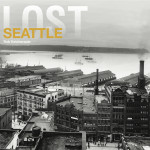Brazen first novel of Kurt Vonnegut.
I love making fun of the misguided quotes on old paperbacks. My version of Player Piano says "A funny, savage appraisal of a totally automated American society of the future. It is loosely related to George Orwell's Animal Farm and just as loosely to Alice in Wonderland. - William Hogan"
So, let's go play by play.
1) Not funny, at least by my definition of the word. I'm beginning to think literary nuts don't really know what "funny" means. Maybe they need more pain in their life.
2) Has nothing to do with Animal Farm. Which I recently realized I hate. Seriously, this is a ridiculous comparison.
3) Has nothing to do with Alice In Wonderland. There's no rabbit hole, no fantastic hidden world, no drug trips, nothing like that.
4) You can't just use the word "loosely" and escape responsibility for a worthless review. Hell, this book is "loosely" related to Mein Kampf and "loosely" related to The Bible.
Amusingly, I looked up the guy's name and the first hit (that's all I have time for) is some professor at Harvard, who specializes in electrical engineering. Explaining the book may reveal why that is humurous.
After a third world war in the 50s, American society is left in the control of the military's war economy machine. Perfect industry, perfect markets. Wartime's inspired engineers find ways to machinate more and more activities. First the laborers are sent into permanent retirement in perfect homes, then the engineers themselves. What's left is an elite of multi-doctorate managers, and the multi-doctorate specialists that serve them and have yet to be replaced (real estate agents, barbers, etc). The masses are left bored and ignoble, and trouble is simmering on the "other" side of the river in every town across America. The tinkerers that made the nation great are left with nothing to occupy them.
So, some real comparisons. This is very similar to Fahrenheit 451, which was published a year later. Our hero is a man with a troubled conscience, slowly realizing the wretchedness of his role in the misled march of society. He sees an emptiness in those around him, and looks desperately for a way to escape and topple the system behind him.
To me, it even moreso echoes the distorted views of the future found in Philip K Dick's early work, which he began writing around the same time. Unlike 451, Player Piano's hero sees the irrational motives of both sides, and seems pulled through events by happenstance more than some moralistic destiny. Like Dick's work, this deals with the mundane. It digs down deeper in society, to the common man, looking at how the average person will be affected by the processes that have been set in motion. I suppose this reflects Vonnegut's background in anthropology.
Wikipedia's Vonnegut entry describes Player Piano as "dystopian science fiction", which also includes 1984 and Brave New World. It's true that this book makes me understand why he calls himself a science fiction writer. It's true that this describes an anti-utopia. Again, though, those great dystopian novels brazenly disregard the common man. There may be freedom fighters, but the common man is apparently a helpless dupe to the system.
Where Player Piano one-ups them, and where I was left disjointed and a bit stunned, is in the ending. If tinkering engineers are only driven by the need to create, and laborers by the want of honest work, what values will drive them to topple the oppressive system and replace it with something better?

